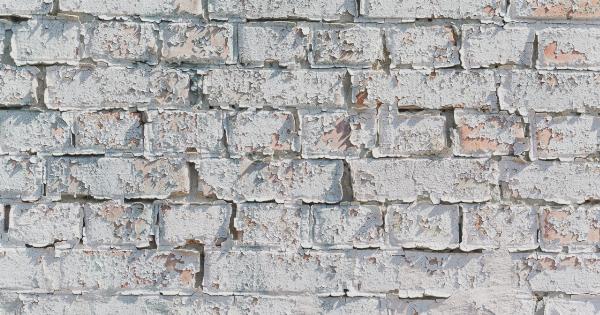Constipation is a disorder that affects the digestive system in which a person has difficulty in passing stool. It is a very common problem and can occur in people of all ages.
While most people experience constipation at some point in their lives, it can be a chronic problem for some. In this article, we’ll explore the causes, symptoms, and treatments for constipation.
What is Constipation?
Constipation is a condition where a person has infrequent bowel movements or has difficulty passing stool.
Normally, a person has 1-3 bowel movements in a day, but for some people, it may be less frequent, and they may feel as if they have not emptied their bowel completely. Constipation can result in bloating, discomfort, and pain in the abdomen.
What Causes Constipation?
There are several factors that can cause constipation, some of which include:.
- Diet: Eating a diet that is low in fiber and high in processed foods can lead to constipation. Fiber-rich foods help to soften stools and add bulk to the stool, making it easier to pass through the digestive system.
- Dehydration: Not drinking enough water can cause stools to become hard and difficult to pass. It’s recommended to drink at least 8-10 glasses of water each day.
- Lack of Exercise: Regular exercise helps to stimulate the digestive system and keep bowel movements regular. A sedentary lifestyle can lead to constipation.
- Medications: Certain medications such as painkillers, antidepressants, and iron supplements can cause constipation.
- Medical Conditions: Certain medical conditions like Parkinson’s disease, diabetes, and hypothyroidism can cause constipation.
Symptoms of Constipation
The symptoms of constipation are typically characterized by infrequent bowel movements and difficulty in passing stools. Other common symptoms of constipation include:.
- Bloating: A feeling of fullness in the abdomen.
- Straining: Difficulty in passing stools, which may require straining.
- Abdominal Pain: Pain and discomfort in the abdomen.
- Hard Stools: Stools that are dry, hard, and difficult to pass.
Treatments for Constipation
The treatment for constipation typically depends on the severity of the condition and the underlying cause. In most cases, constipation can be treated through lifestyle changes. Some common treatments for constipation include:.
- Dietary Changes: Eating a diet that is rich in fiber can help to relieve constipation. Fiber can be found in fruits, vegetables, whole grains, and legumes.
- Hydration: Drinking plenty of water can help to soften stools and make them easier to pass.
- Exercise: Regular physical activity can help to stimulate the digestive system and keep bowel movements regular.
- Laxatives: In some cases, laxatives may be used to help relieve constipation. However, laxatives should only be used under the guidance of a healthcare professional.
- Enemas: An enema is a liquid that is inserted into the rectum to help soften stool and stimulate bowel movements.
When to See a Doctor
Most cases of constipation can be treated at home with simple lifestyle changes.
However, if you experience severe constipation that does not respond to these treatments or if you have other symptoms such as blood in the stool, weight loss, or abdominal pain, it’s important to see a doctor. These symptoms could be a sign of a more serious condition, and early detection and treatment are essential.
Preventing Constipation
There are several lifestyle changes you can make to prevent constipation. These include:.
- Eating a Healthy Diet: Eating a diet that is rich in fiber can help to prevent constipation. Choose whole grains, fruits, vegetables, and legumes.
- Drinking Plenty of Water: Staying hydrated can help to prevent constipation.
- Exercise Regularly: Regular physical activity can help to stimulate the digestive system and keep bowel movements regular.
- Manage Stress: Stress can impact digestion and bowel movements. Try to find ways to manage stress, such as meditation, yoga, or deep breathing exercises.
Closing Thoughts
Constipation is a very common problem, and most people experience it at some point in their lives. While it can be uncomfortable and painful, it is typically not a serious condition and can be treated with simple lifestyle changes.
If you experience severe or chronic constipation, it’s important to see a doctor to rule out any underlying medical conditions.





























